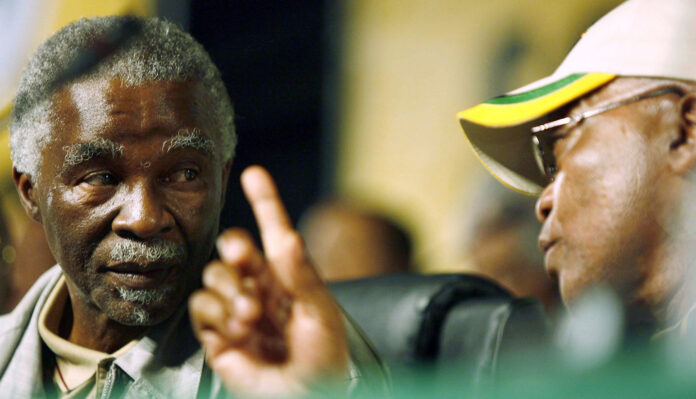Do politicians understand that self-restraint, as opposed to the launch of a vituperative attack on others, is a sign of political virtue and maturity—a strength that should be embraced and not frowned upon?
It is a strength that, more often than not, is productive and bound to produce better political outcomes.
Think of it in this way: Let us mentally go back to the combustive Polokwane ANC national conference of 2007, in which the country’s sitting president and then ANC president, Thabo Mbeki, was not only defeated but maligned and rubbished by the faction that had Jacob Zuma as its preferred candidate.
Was the faction opposed to Mbeki’s presidency entitled to go with their preferred candidate, Zuma?
Indeed, the faction had all the right to choose Zuma as its candidate for the hot seat. But supposing the conference, consisting of delegates from all factions—the Mbeki and Zuma groupings—knew something as crucial as the fact that Zuma was fatally flawed and unsuited for the position, what would it mean to have the ANC and the country led by an unsuitable candidate with questionable credentials?
The hypothesis is not out of kilter with reality. Put differently, what would university students think if they knew that their vice chancellor did not have any formal education for the position? Would they not justifiably be gutted?
This would be the same—and it would be unheard of—to have a CEO of any company, small or big, led by an unqualified candidate.
But at Polokwane, this did not happen.
A candidate whose ethical rectitude was in doubt and who was demonstrably morally fractured was elected to be the president of the ANC and potentially in line to be elected president of the country.
At that time a big and high-commanding political organisation with an electorate base of nearly 70%, led by an astute and sound economist, whose state craftsmanship and political understanding were demonstrably excellent, was compromised at the altar of political expediency, and Mbeki was relegated to the political doldrums, simply because “an opening was being created for an unqualified leader to satisfy political ends of a certain faction”.
If not only through a lack of political foresight and pursuance of populist thinking, senior leaders of the ANC, Cosatu and the SACP, including Zwelinzima Vavi, Julius Malema and Blade Nzimande, among others, through their influence cleared the path for Zuma’s presidency, which would plunge the country into its darkest hour of governance – accompanied by the looting of state resources.
Zuma’s moral probity, even as it was well-known to be questionable and at a low ebb – exacerbated by allegations of rape charges against him and the lack the requisite skills to run the country—these deficiencies were simply ignored and treated as if they were contrived hurdles calculated to stop his presidency
The country has now entered a new phase during President Cyril Ramaphosa’s last term, which is the politics of a government of national unity (GNU) – a period that has seen the ANC losing power, only amassing a lack-lustre 40% of the national electoral vote during the May 29, 2024 polls.
In both Gauteng and KwaZulu-Natal, the bloodbath continued, with huge ANC provincial defeats adding to the implosion of the once invincible juggernaut.
The ANC, in its wisdom, has cobbled together political parties whose ideologies in essence and substance are diametrically opposed to theirs but for practical reasons, such as running the government, the former liberation movement has been forced to work with political parties such as the DA, their sworn political rival.
But what is the hard truth, which is our existential reality?
Whatever the country does, our understanding of the world is intertwined with our personal and emotional engagement with it.
As philosophers would concede, we have to come to terms with the world the way it is.
The reality is that the ANC has not won an outright majority in the polls. Now they are forced to tone down their demands, making do with what today’s reality determines.
- Mdhlela is an independent journalist, an Anglican priest, an ex-trade unionist, and former editor of the South African Human Rights Commission journals



